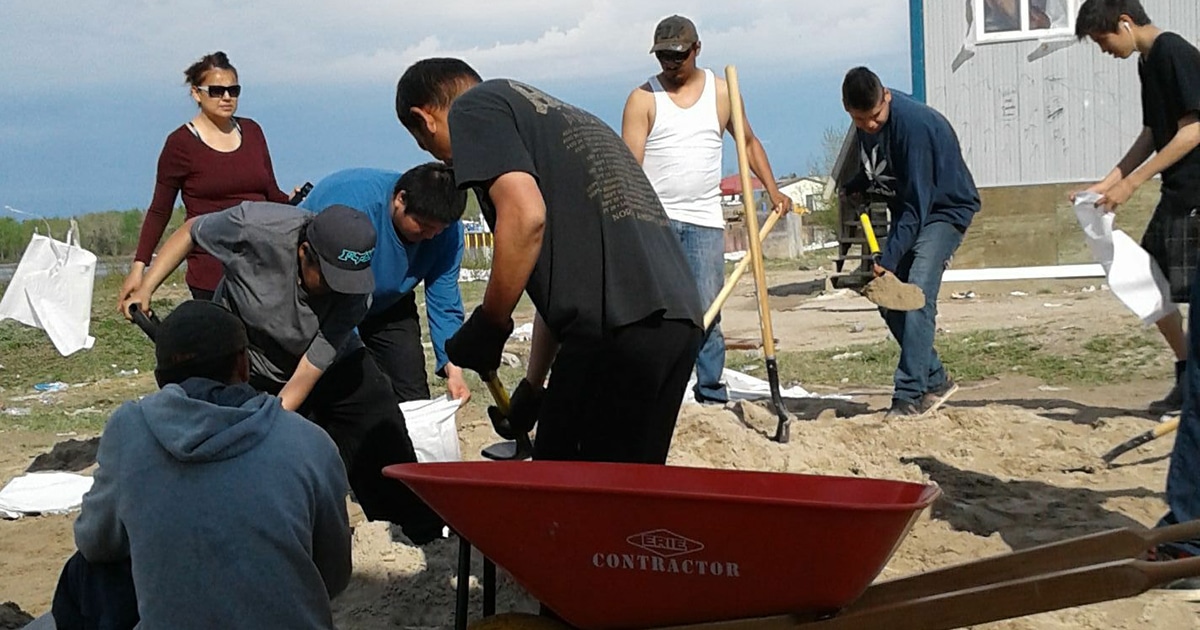The Anglican Council of Indigenous Peoples (ACIP) is calling on the Anglican Church of Canada to pray for the community of Split Lake, Man. and the Tataskweyak Cree Nation, as flooding threatens the homes of residents and risks contaminating local drinking water.
On May 18, a band council resolution passed by the chief and council of Tataskweyak declared a state of emergency due to rising water levels and potential water quality issues; issued a flood warning to those at risk of being flooded out of their homes; and called for immediate and ongoing water testing until area water is deemed safe to drink.
A boil water advisory was issued around the same time following the discovery of E. coli in water near Split Lake, an all-Anglican community with a population of more than 3,000 people.
“The people now are very cautious and worried about the quality of water,” said the Rev. Larry Beardy, ACIP member and resident of Split Lake who regularly travels to Anglican congregations in neighbouring communities such as Gillam.
While Beardy said the community has received assurances from Health Canada that water quality is now safe, chief and council remain unconvinced and many suspect that raw sewage may have gone into the drinking water system. A nearby health centre recently confirmed that some residents have developed the stomach illness H. pylori.
“Many people have that sickness in their stomach now,” Beardy said.
In response, some local businesses have arranged for deliveries of bottled water to beleaguered residents.
Flooding poses other threats to Split Lake. There is now concern about continued access to the community via Manitoba Provincial Road 280, amidst fears that a bridge providing the only access to the community for people and supplies might be washed out.
Some homes have already suffered the effects of flooding, while others remain at risk. Many cabins have been flooded and remain inaccessible, and a number have been destroyed.
“There is worry,” Beardy said. “There’s been sandbagging around several homes, but I think they’ve got that in control … Manitoba Hydro has dikes around the community, but the water has gone over some parts of that dike system, and they had to start sandbagging … Water is very close to some homes.”
Destruction of the local cemetery is a major concern, and church leaders have requested soil tests around the cemetery to determine whether graves have been flooded or not.
Chief Doreen Spence and other leaders of the community are currently meeting with Manitoba Infrastructure, Health Canada, and Manitoba Hydro to manage the situation and provide updates for residents.
For its part, ACIP has taken a lead role in raising public awareness of the flooding and seeking assistance. The council has requested that the whole Anglican Church of Canada pray for Split Lake and surrounding communities, as they face the threat of flooding and contaminated water.
Meanwhile, National Indigenous Anglican Bishop Mark MacDonald has contacted the Primate’s World Relief and Development Fund regarding the possibility of emergency assistance. Following requests for a blessing of the water ceremony, Bishop MacDonald will arrive in Thomson, Man. on the morning of Sunday, June 11 to survey the flooding, visit affected communities, and provide pastoral ministry.
Help support emergency response through the Primate’s World Relief and Development Fund.
Interested in keeping up-to-date on news, opinion, events and resources from the Anglican Church of Canada? Sign up for our email alerts .

